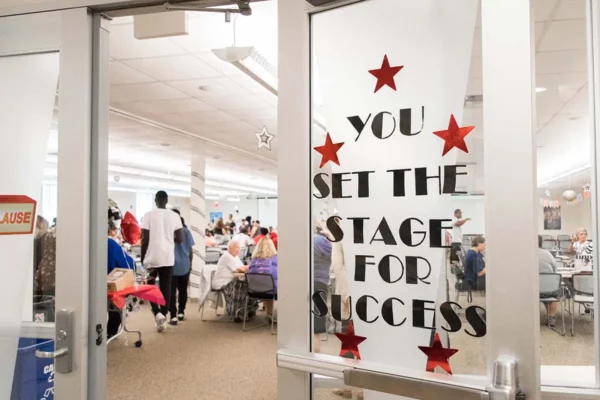A forensic interview is a structured conversation with a child with the purpose of obtaining information about possible event(s) the child may have experienced, including abuse, neglect or the witnessing of a violent crime. In addition to being legally sound, the forensic interview is also a developmentally-sensitive method of gathering information with trauma reduction being a top priority. Forensic interviewing is the core service provided at the Center for Child Protection.
Following a referral from local law enforcement or the Department of Family and Protective Services (DFPS), we arrange to have one of our specially-trained forensic interviewers interview the child at either our main facility in East Austin or our satellite office in Lakeway.
In 2017, we conducted forensic interviews on 1,303 children–that’s an average of five children per day.
Purposes of a Forensic Interview
- Assess the safety of the child’s living situation
- Elicit information from a child that may be helpful in a criminal or civil investigation
- Identify the need for medical treatment and/or psychological care
Trauma Reduction
Traumatization can occur each time a child relays their story of abuse. Here is how we prevent retraumatization through our forensic interview process:
- The interview is recorded so a child only has to tell what happened to them once.
- Forensic Interviewers at the Center for Child Protection are trained on the job. They are skilled at obtaining clear information without asking leading questions, while also providing a safe space for children to tell their stories.
A Tool Integral to Child Welfare
The forensic interview is an important tool in the child welfare sector, as it assists an agency in deciding of whether or not child abuse has occurred. Information from the interview can also provide information useful to DFPS in creating a safety plan for the child and supporting the protective family.
At the Center for Child Protection, our forensic interviewers work closely with the entire Child Protection Team (CPT). Interviews are observed by a member from each agency on the team, ensuring all agencies have the same information to make determinations on their respective cases.
Because it is used in combination with a multidisciplinary response, forensic interviewing helps team members understand the different roles within the CPT and enables them to see the larger picture in order to be more effective at achieving their common goals: fostering safe and healthy relationships for children and preventing further harm and exploitation.
Contact Info
Center for Child Protection
8509 FM 969, Building 2
Austin, Texas 78724
Phone: 512-472-1164
Fax: 512-472-1167
Web: centerforchildprotection.org











